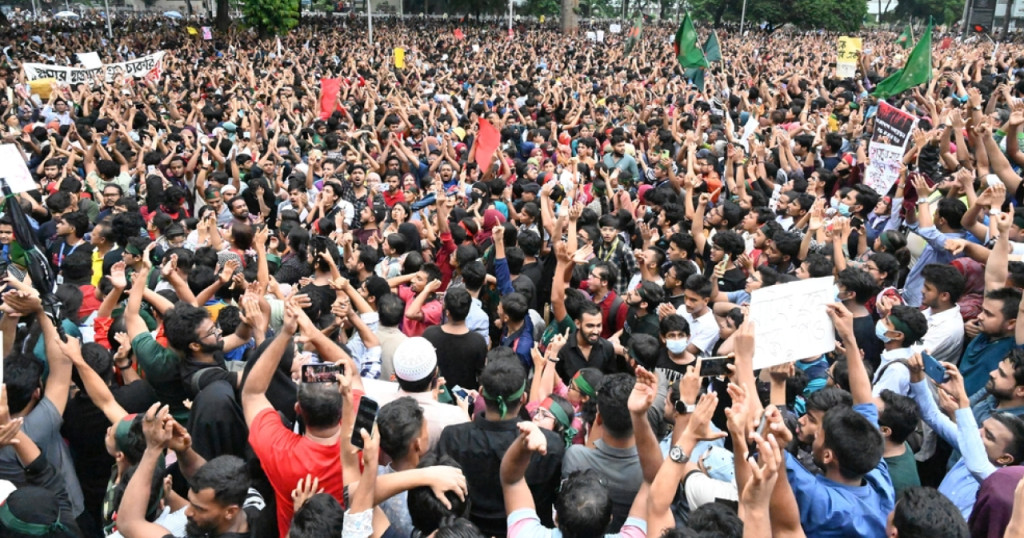
Muslims across the globe must rise up and stand firmly for human rights, advocating for the fundamental rights that Islam guarantees: the right to life, freedom, property, intellect, family, and religion.
The Maqāsid al-Sharī’ah (objectives of Islamic law) underpin these basic human rights. It is our duty to ensure that rulers do not get away with such evil.
Bangladesh presents a clear example of such repression. Young people — especially students — had enough and initiated a movement against a controversial policy proposing a quota system favouring descendants of those who fought in the 1971 independence war.
The students’ peaceful protests were met with brutal force, resulting in the deaths of over 500 pupils.
Despite this, their determination brought about a significant shift, demonstrating that collective action can indeed topple tyrants.
BACKGROUND
- From 6 June to 3 August, students across Bangladesh demonstrated against the government's jobs quota system
- Controversial system deliberately favoured descendants of 1971 War of Independence
- 20-30 per cent of civil service jobs were reserved for such family members
- Further ten per cent designated for minority groups, so less than 60 per cent offered to general population
- Merit of individuals totally disregarded due to this unacceptable system
- Approximately 500 students have died in the unrest, with Prime Minister Sheikh Hasina resigning and fleeing to India on 5 August
Advice for the persecuted
Now that a new government is beginning with an interim administration, it is crucial that those responsible for violence, oppression, and dehumanisation are brought to justice.
The Bangladeshi people deserve an opportunity to seek justice through lawful means, ensuring that perpetrators are held accountable.
My advice to the people of Bangladesh and those of Bangladeshi origin is to have patience and continue your struggle for a just and civil government.
Uphold your commitment to human rights and moral values as you work towards a better future.
Long-term strategies for stability and justice
To ensure political stability and justice in Bangladesh, several long-term strategies must be implemented.
Constitutional reform
The interim government should establish a constitutional body to draft a new constitution, replacing the current one, which has been tampered with by the Awami League.
This new constitution should pave the way for free and fair elections, allowing the Bangladeshi people to elect their government democratically.
Accountability and justice
The Awami League, which has governed with an iron fist, should be banned.
Individuals within the party who have committed serious crimes must be prosecuted and, if found guilty, imprisoned.
Those involved in corruption should also be arrested, and any siphoned funds should be returned to Bangladesh.
Independent institutions
Law enforcement agencies and the military must operate independently, free from political influence.
Bangladesh needs to develop robust civil society institutions.
Ending external interference
Indian interference in Bangladeshi affairs must cease.
Bangladesh must assert its sovereignty and build a democracy that truly represents the will of its people.

Moving forward
This journey towards a just and stable Bangladesh will take time.
Bangladeshi students — who have shown remarkable courage and determination — should respect and support the transitional government.
Working collaboratively will be essential in achieving a fully developed democracy and a vibrant civil society.
Source: Islam21c







